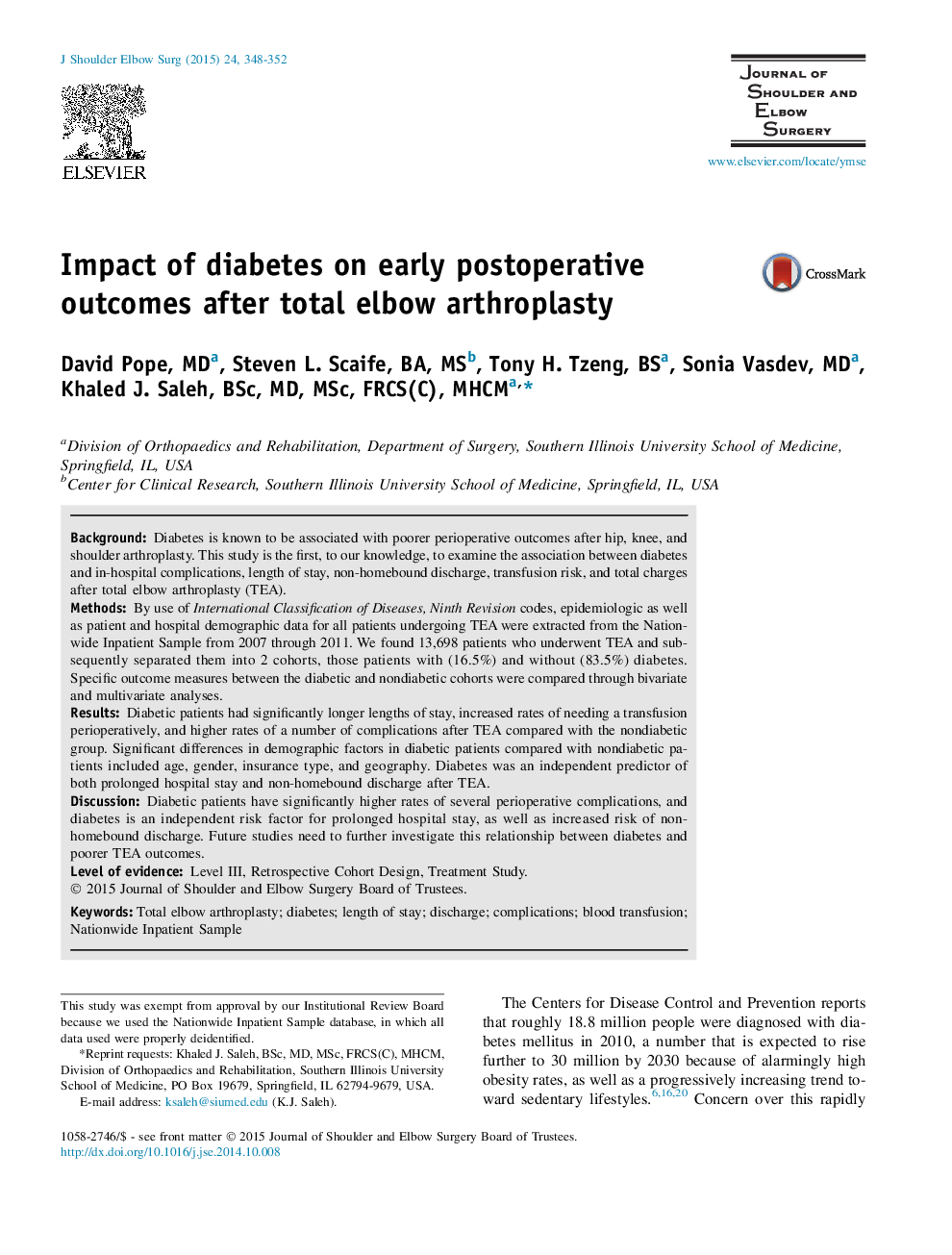| Article ID | Journal | Published Year | Pages | File Type |
|---|---|---|---|---|
| 4073498 | Journal of Shoulder and Elbow Surgery | 2015 | 5 Pages |
BackgroundDiabetes is known to be associated with poorer perioperative outcomes after hip, knee, and shoulder arthroplasty. This study is the first, to our knowledge, to examine the association between diabetes and in-hospital complications, length of stay, non-homebound discharge, transfusion risk, and total charges after total elbow arthroplasty (TEA).MethodsBy use of International Classification of Diseases, Ninth Revision codes, epidemiologic as well as patient and hospital demographic data for all patients undergoing TEA were extracted from the Nationwide Inpatient Sample from 2007 through 2011. We found 13,698 patients who underwent TEA and subsequently separated them into 2 cohorts, those patients with (16.5%) and without (83.5%) diabetes. Specific outcome measures between the diabetic and nondiabetic cohorts were compared through bivariate and multivariate analyses.ResultsDiabetic patients had significantly longer lengths of stay, increased rates of needing a transfusion perioperatively, and higher rates of a number of complications after TEA compared with the nondiabetic group. Significant differences in demographic factors in diabetic patients compared with nondiabetic patients included age, gender, insurance type, and geography. Diabetes was an independent predictor of both prolonged hospital stay and non-homebound discharge after TEA.DiscussionDiabetic patients have significantly higher rates of several perioperative complications, and diabetes is an independent risk factor for prolonged hospital stay, as well as increased risk of non-homebound discharge. Future studies need to further investigate this relationship between diabetes and poorer TEA outcomes.
